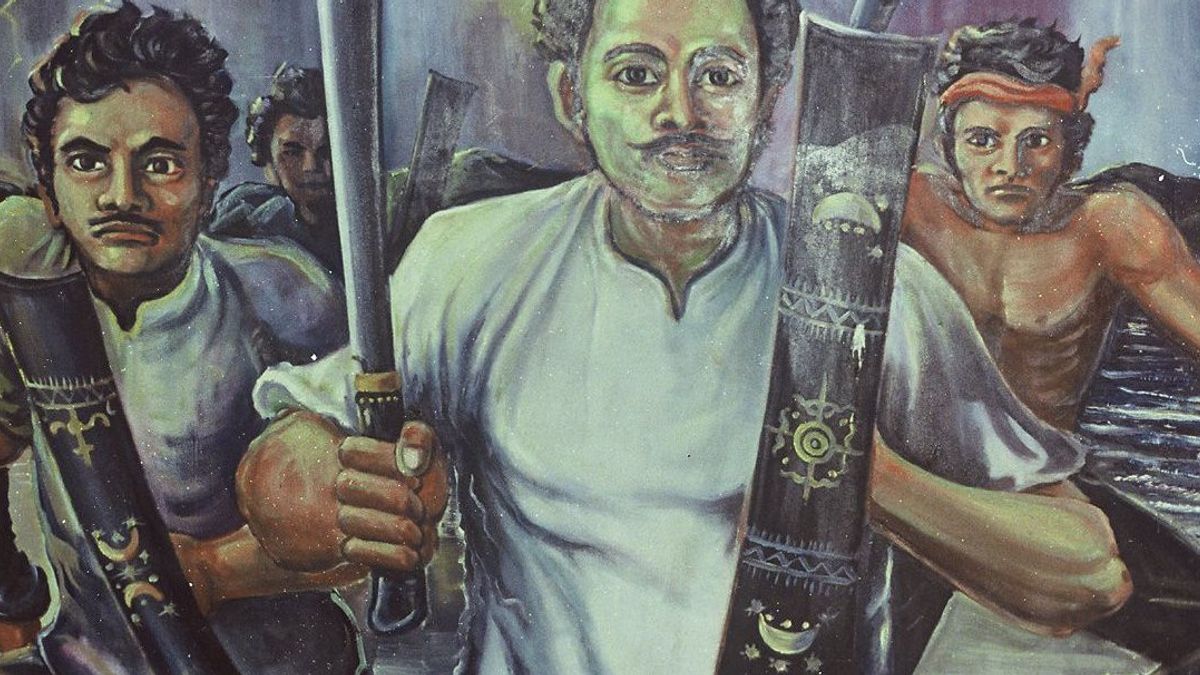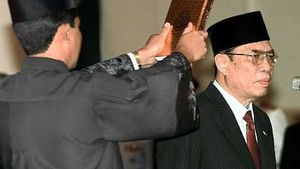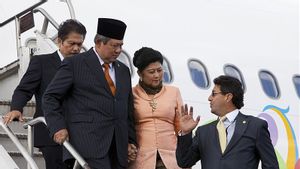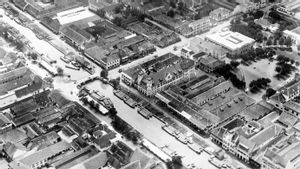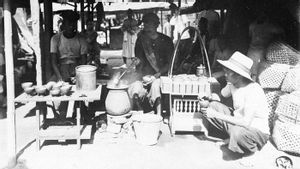JAKARTA History today, 206 years ago, December 16, 1817, the colonial government of the Dutch East Indies held a hanging sentence for Thomas Matulessy or better known as Kapitan Pattimura. The sentence was perpetuated by the Dutch in the field in front of Victorian Fort, Ambon, Maluku.
Previously, the power of Dutch colonialists often suffered the people of Maluku. They were squeezed like dairy cows. This condition made opponents appear everywhere. Pattimura's resistance, for example. The resistance troubled the Dutch.
The Dutch colonialists - any form - often troubled the people of Maluku. The narrative occurred when the Dutch trading airline VOC disbanded, then replaced by the Dutch colonial government. The nature of the people's colonialism and suffering continues to be maintained.
This condition made local youths angry. The people of Maluku, especially Saparua chose Kapitan Pattimura as a symbol of resistance. The election was because Pattimura himself was active as part of the British militia when Thomas Stamford Raffles became Lieutenant Governor General of the Dutch East Indies.
The results were brilliant. Pattimura's struggle often troubled the Dutch. Karisma and Pattimura's leadership made many people in Maluku sympathize and participate in perpetuating the resistance action against the Dutch.
The greatness of Pattimura in formulating a war strategy was recognized by the Dutch. In fact, the Dutch were overwhelmed. The colonizer almost gave up because Pattimura was able to carry out attacks on Dutch ships. The ships were burned to the ground.
Another of Pattimura's most memorable actions was when he won the Durrstade Fort in Saparua. The entire fort was conquered by Pattimura. Even with limited weapons. Since then Pattimura has continued to be a frightening scourge for the Dutch colonialists.
Pattimura is the pseudonym Thomas Matulessy who was once a major sergeant in the British militia army in Ambon when England temporarily occupied the Maluku Islands. When Maluku was handed back to the Netherlands in 1817, Matulessy and his friends were laid off and they returned to their respective villages. Matulesy visited Saparua and met a number of local youths who were being hit by fears of the Dutch militia policies.
The sister also did not escape that feeling, which then affected Matulessy. This concern stems from the news that the youths would be forcibly transported to become Dutch soldiers on the island of Java. Such news created a shadow of fear. Therefore, they made up their determination to oppose the policy and put up resistance, "explained Nugroho Notosusanto and his friends in the book National History of Indonesia IV (2008).
The Dutch colonizers did not lose their minds. Pattimura's resistance did make them furious. The strategy was also played. The Dutch tried to bring in troops from here and there. The goal is clear. They want to break the chain of Pattimura resistance.
Recently, Pattimura and his troops have been under pressure. Some are trying to betray Pattimura's struggle. His hiding place was known and then surrounded by the Dutch. Pattimura inevitably became a Dutch prisoner.
The Dutch also decided to give Pattimura a severe punishment for revolt. Instead of exile Pattimura, the Netherlands chose the death penalty for Pattimura. The warrior and his friends were then executed on a hanging in the front yard of Victorian Fort, Ambon on December 16, 1817.
SEE ALSO:
The victory of the Saparua people affected other areas to invade Dutch trade posts in various areas of Maluku. Major Beetjes' death by the Dutch Government was considered a major insult so that in October 1817, troops were deployed on a large scale. In addition, the Dutch government also used various strategies to break the resistance.
The Dutch government assumed that the Pattimura resistance could only be stopped with fighting politics, deception and scorched earth. In November 1817, the Netherlands was finally able to arrest Pattimura, Anthoni Rhebok, Thomas Pattiwael and King Tiow. By the Dutch Court Pattimura was later sentenced to death," Joko Dermawan wrote in the book National History when the Archipelago Speaks (2017).
The English, Chinese, Japanese, Arabic, and French versions are automatically generated by the AI. So there may still be inaccuracies in translating, please always see Indonesian as our main language. (system supported by DigitalSiber.id)
